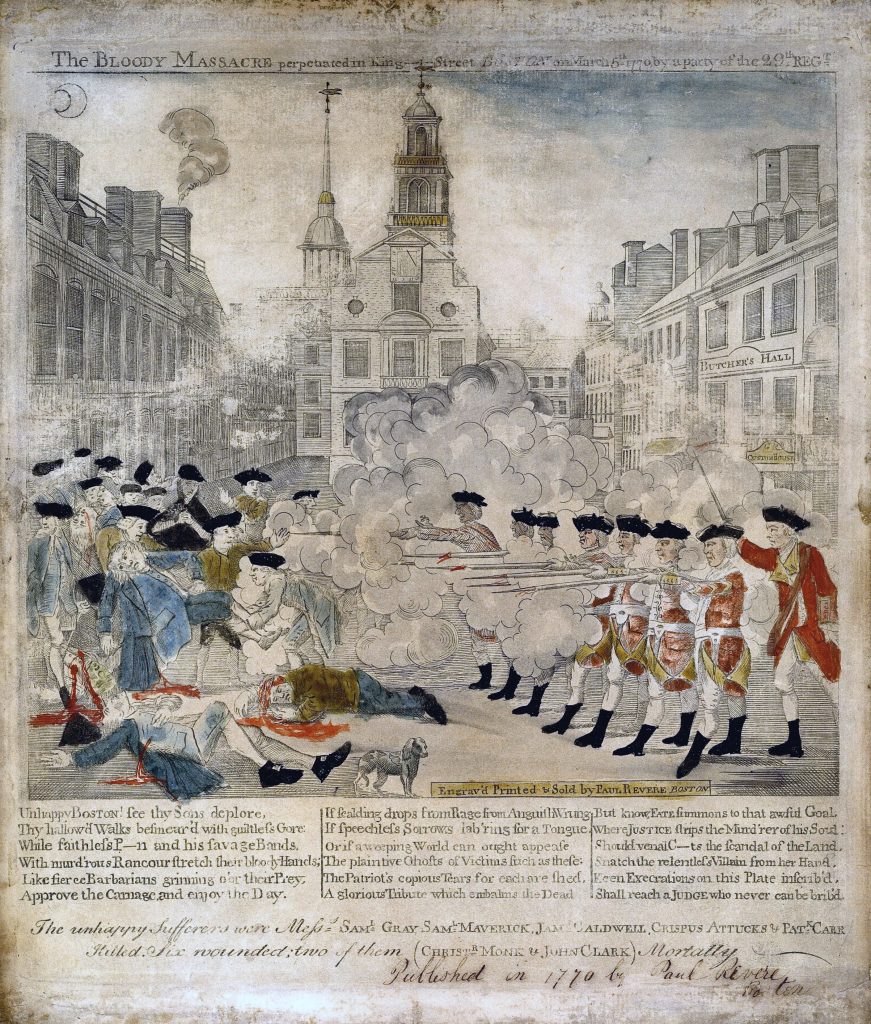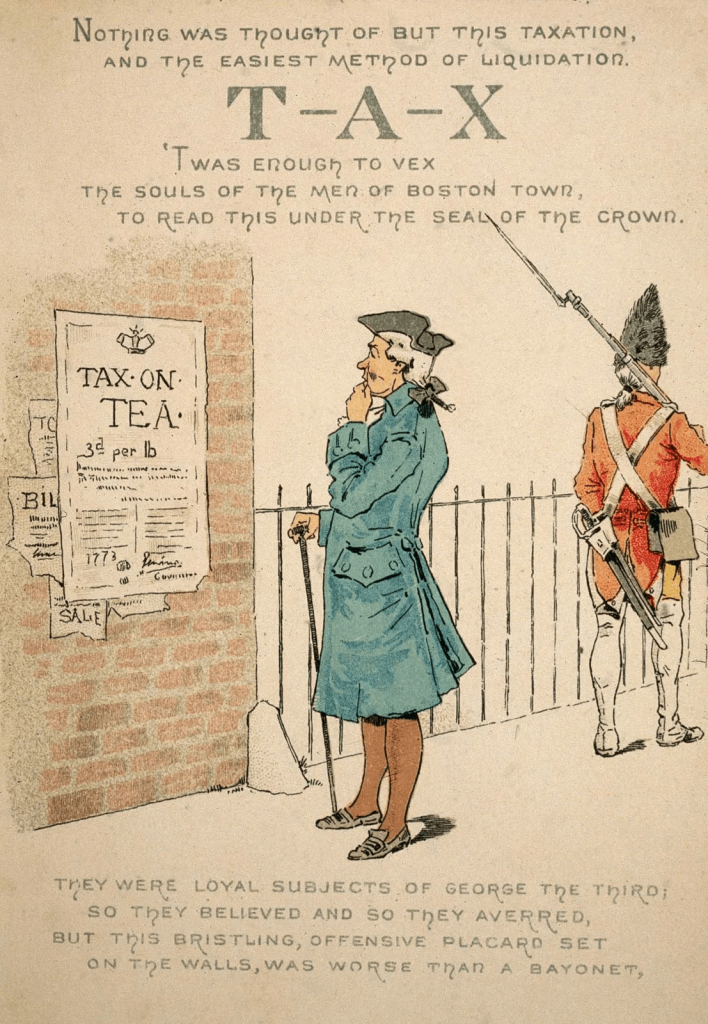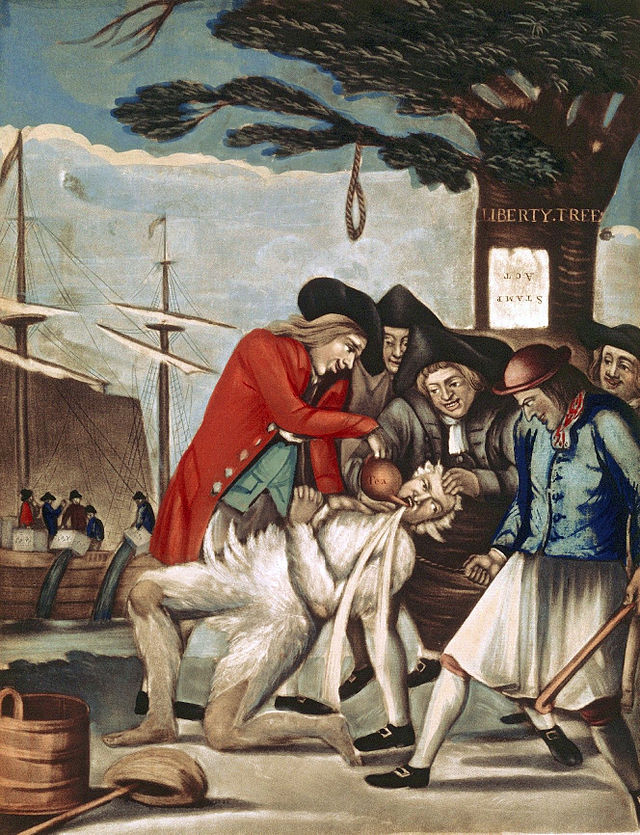
Edward A. St. Germain created AmericanRevolution.org in 1996. He was an avid historian with a keen interest in the Revolutionary War and American culture and society in the 18th century. On this website, he created and collated a huge collection of articles, images, and other media pertaining to the American Revolution. Edward was also a Vietnam veteran, and his investigative skills led to a career as a private detective in later life.
The Tea Act of 1773 was a law implemented by the British parliament, which gave the British East India Company an effective monopoly on tea sold in the Thirteen Colonies.
In this article, we’ve explained what the Tea Act did, why it was implemented, and the effects it had.
In the late 1760s and early 1770s, tensions between American colonists and the British government were rising.
Beginning in 1764, the British placed new taxes on their overseas colonies, in an attempt to raise revenue. They clamped down on illegal smuggling, and tried to encourage trade with British companies.
The colonists were outraged at what they considered British overreach. Although most of the new taxes were not large, Patriots believed that the British did not have the right to implement whatever taxes they wanted in the colonies, since the colonists had no representation in British parliament.
Backlash against the Stamp Act of 1765 was particularly extreme, leading the British to repeal the law a year later. Colonial governments refused to abide by the Quartering Act of 1765, and the colonists organized trade boycotts of British goods in response to the Townshend Acts of 1767-68.
Anti-British sentiment was at its highest in Boston, where colonial merchants and smugglers found themselves subject to the arbitrary search and seizure of their goods by British customs officers. This escalation in conflict eventually led to the Boston Massacre in March 1770, where five civilians were killed by British soldiers.

The Townshend Acts were mostly repealed in 1770, but two aspects remained:
This tax reduction on tea imported into England was designed to save the East India Company, which was struggling financially.
At the time, tea had to be imported into England before it could be exported to the colonies. By cutting the import tax on tea going into the United Kingdom, this increased the company’s profits, and made their tea cheaper than the tea smuggled into the colonies from other countries.

As a result of the tax reduction, the East India Company began ramping up its tea production. However, sales were not as strong as expected in England or the colonies, since Dutch tea was still cheaper, and it ended up with a huge oversupply of tea in its London warehouses.
To help the company offload its huge supplies of tea, and avoid financial collapse, the British parliament passed the Tea Act on May 10, 1773.
Under the Tea Act, the British East India Company could export tea directly to the colonies, rather than having to go through Great Britain first, helping the company avoid double taxation.
Also, tea shipped out from Britain was exempt from export duty. However, the tax collected by the British when tea was imported into America remained in place.
The purposes of the Tea Act were to:
There were widespread protests and acts of resistance in response to the Tea Act, leading to a significant increase in tension between the Patriots and Loyalists.
In some ports such as New York, tea was shipped back to Britain, or left in the port by the colonial authorities, which was illegal under British law.
On December 16, 1773, members of the Sons of Liberty boarded an East India Company ship docked in Boston Harbor, and dumped more than $1m worth of tea into the sea. This famous incident became known as the Boston Tea Party.
Protests and unrest continued, especially in major port cities like Boston. On January 27, 1774, a British customs officer was tarred and feathered by an angry mob, and forced to drink tea.

The British were appalled by the colonists’ actions. They closed Boston Harbor, and introduced a series of punitive laws known as the Coercive Acts, or Intolerable Acts, in 1774. These acts placed more restrictions on the colonists, and were considered extremely unfair, leading to an increased escalation in tensions.
The colonists increasingly realized that they had to respond to British overreach. In 1774, the First Continental Congress was held in Philadelphia, and it was decided to petition King George III of England about colonial grievances, but the petition was ignored.
![]()
Read the diary of Charles Herbet, a Continental soldier that was captured by the British Army and sent to a prison of war camp in the UK.
![]()
Read entries from 1781 in the journal of James Thatcher, Continental Army surgeon during the American Revolution.
![]()
Read entries from 1780 in the journal of James Thatcher, Continental Army surgeon during the American Revolution.